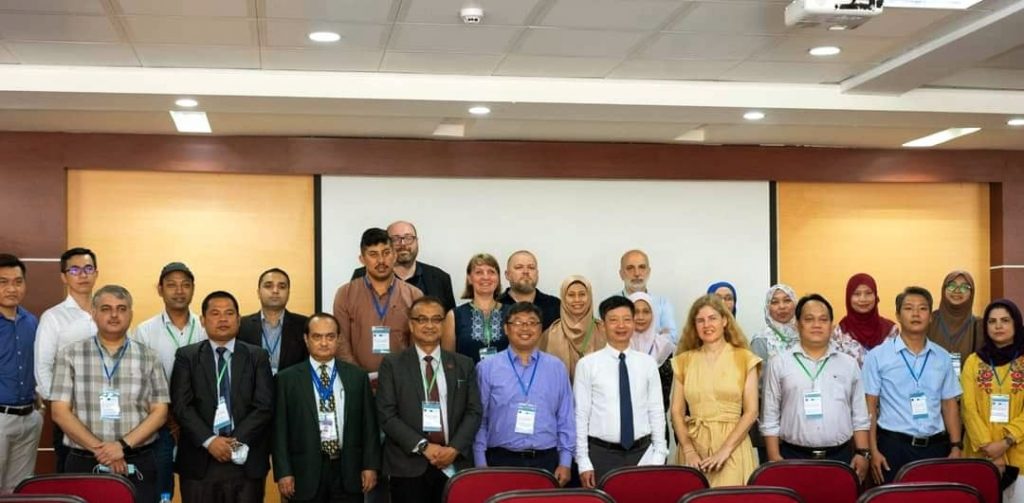
An instructor training event took place from June 27 to July 1, 2022 in Hanoi, Vietnam. The event took place in person. It was a standalone full training activity with a duration of 1 week, as foreseen in the ICT-INOV project proposal. The purpose of the event was to provide participants with in-depth practice on deploying design thinking activities for innovation in classrooms.
Audience
University of Malaya (MY), University Tenaga National (MY), National University of Future and Emerging Sciences (PK), ISRA University (PK), Tallinn University (EE), Tribhuvan University (NP), Kathmandu University (NP), Hanoi University (VN), and Von Newmann Institute (VN). Participants were educators in Computer Science or Engineering programs at partner sites.
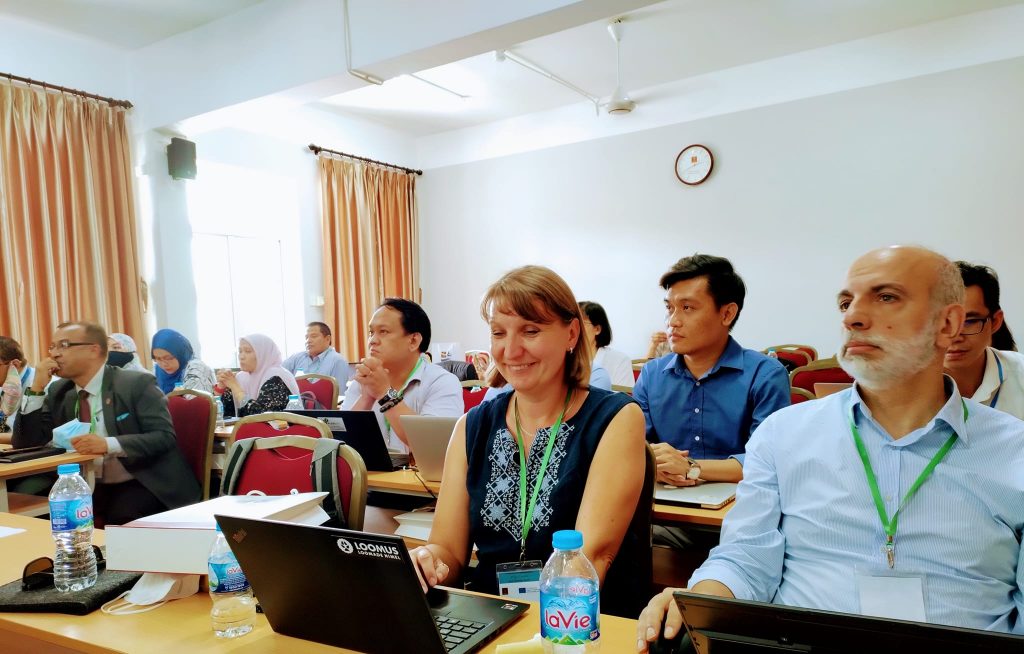
Activities
The Hanoi University Vice Rector opened the event wishing participants a successful and productive week. The Vice Rector received symbolic gifts from participant organizations.
On day 1 of the event, participants received an overview presentation of design thinking and commonly accepted steps of problem discovery, empathy, problem definition, ideation, prototyping, and evaluation. They were presented with the central topic of the workshop, namely the problem to which they were challenged to introduced solutions, which was “Sustainability”. To facilitate the work, participants followed a presentation on sustainability, which was complementary to the one they received in Porto, providing new insights on the challenges faced by society in the 21st century.
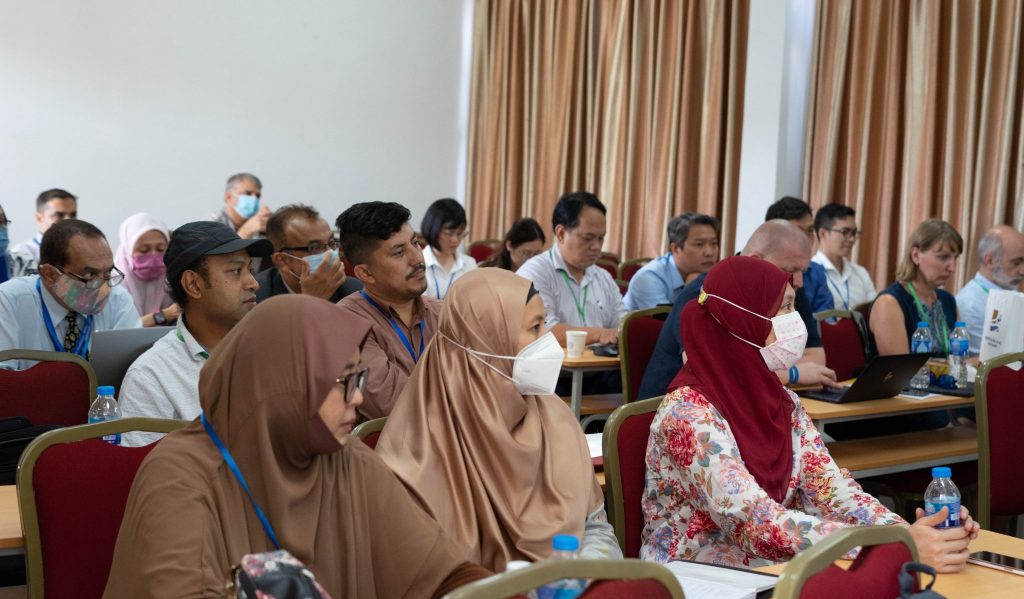
Participants then worked on creativity fostering exercises, which they can use when structuring their own design thinking activities. The creativity exercises aim to demonstrate to students that everyone is inherently creative and capable of designing innovative solutions. The exercise that participants worked on was “30 circles”, which challenges individuals to turn circles into recognizable objects.
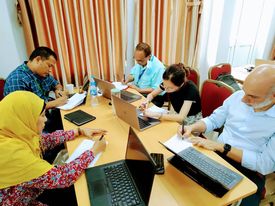
Subsequently, participants worked on team building exercises. The exercise selected for this training event included a paper-rock-scissors contest, through which individuals get to meet and play with each other, thus breaking the ice. Additional activities were suggested to participants to be used as alternatives when structuring design thinking steps.
They then registered into a course specifically designed for the training week and in groups, simulating the way students use the platform in innovation activities.
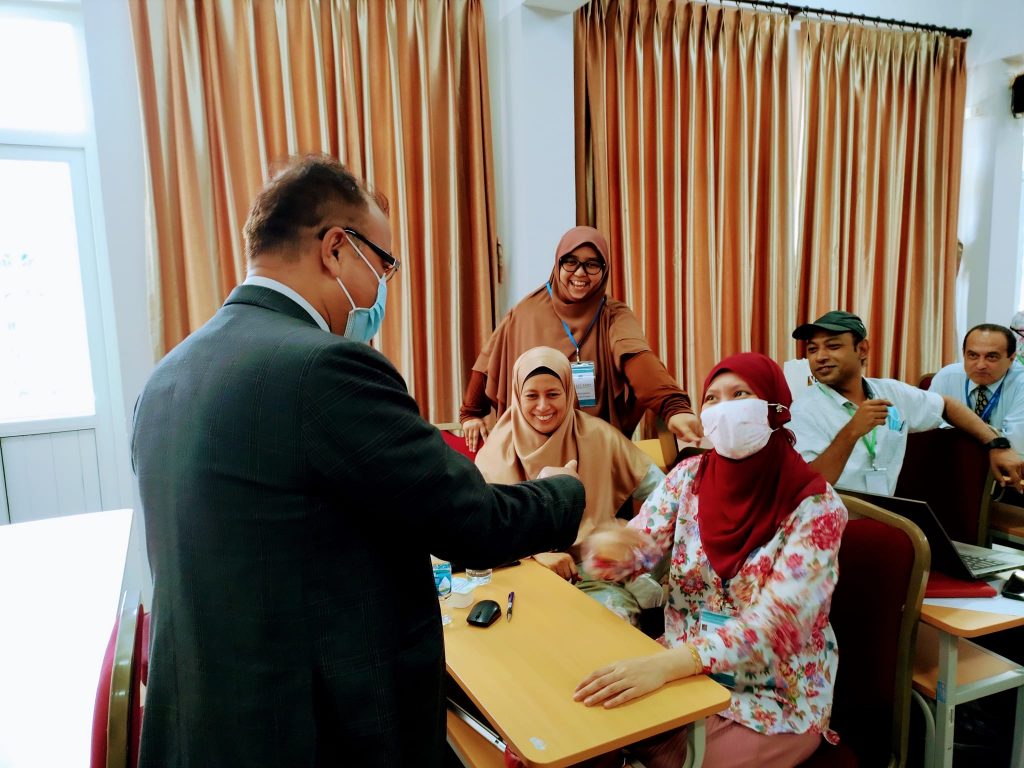
On day 2 of the event, participants engaged in defining a team logo and name, which provided an identity for their team.
Subsequently, they engaged in problem discovery. This included researching the general topic of sustainability on the internet, selecting one idea they would like to work on, and describing the problem through articles, images, and videos retrieved from the internet. Then, participants researched the problem in-depth, by establishing associations with people, places, and feelings.
Furthermore, they received recommendations on structuring and delivering interviews, including on how to select the questions and the setup of an interview as well as providing a small reward to respondents.
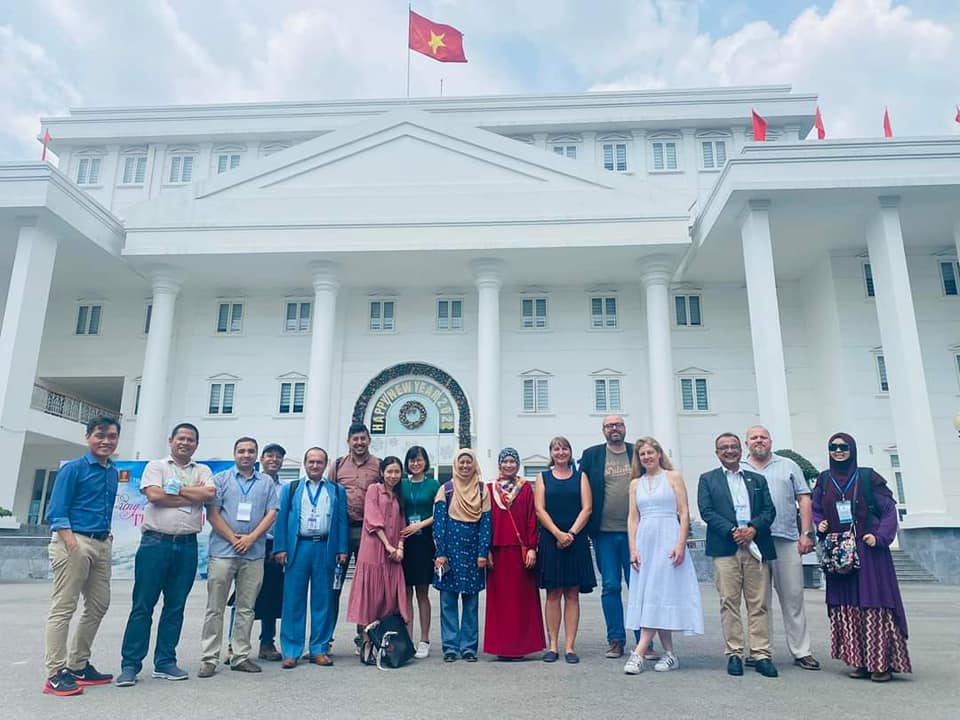
On day 3 of the event, participants started by presenting the results of problem discovery and user persona analysis to the entire group. In addition, they published their findings on the ICT-INOV platform, simulating the role of students, in order to become familiar with its functionality.
The next step was for participants to engage in problem redefinition. Based on their research of the problem they had selected and the analysis of user needs, desires, and feelings, they defined a point of view statement in the form of “how might we introduce a solution that addresses a specific need of a particular user group”. Each team presented their point of view statement to the entire group and published it on the ICT-INOV platform.
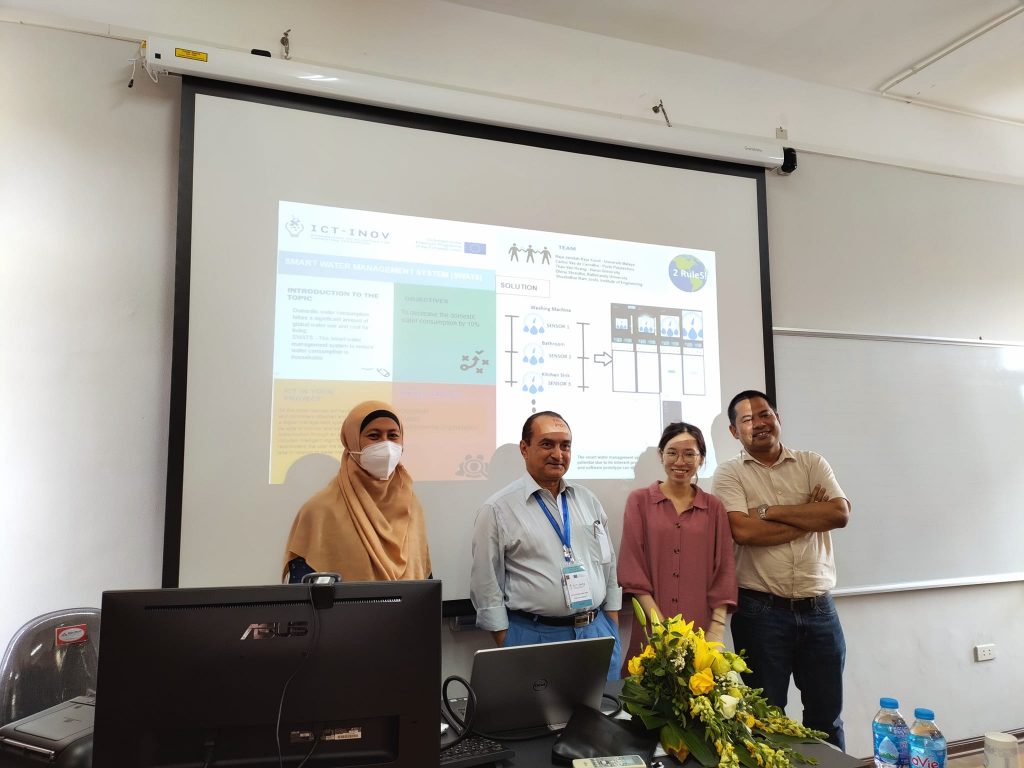
On day 4 of the event, participants engaged in ideation activities. The worked with their team members to introduce an as broad as possible pool of ideas that could be synthesized to create a solution. Teams presented their work to the entire group. They engaged in exercises that encouraged them to consider solutions that require broad funding, solutions feasible with little funding, solutions starting with a different letter of the alphabet, which challenges users to engage different parts of their brain, and the “6-3-5” exercise in which each team member in a group of 6 writes 3 ideas in the context of 5 minutes while in subsequent steps team members elaborate on the ideas suggested by their peers. These exercises help introduce a broad range of ideas.
Subsequently, teams worked on idea evaluation. To achieve this, they engaged in the “now-wow-how” exercise, in which they were asked to categorize ideas into the most approachable, the most innovative but still feasible, and ideas for future consideration. Through this exercise, participants selected an idea for prototyping. They documented their work in the ICT-INOV platform.
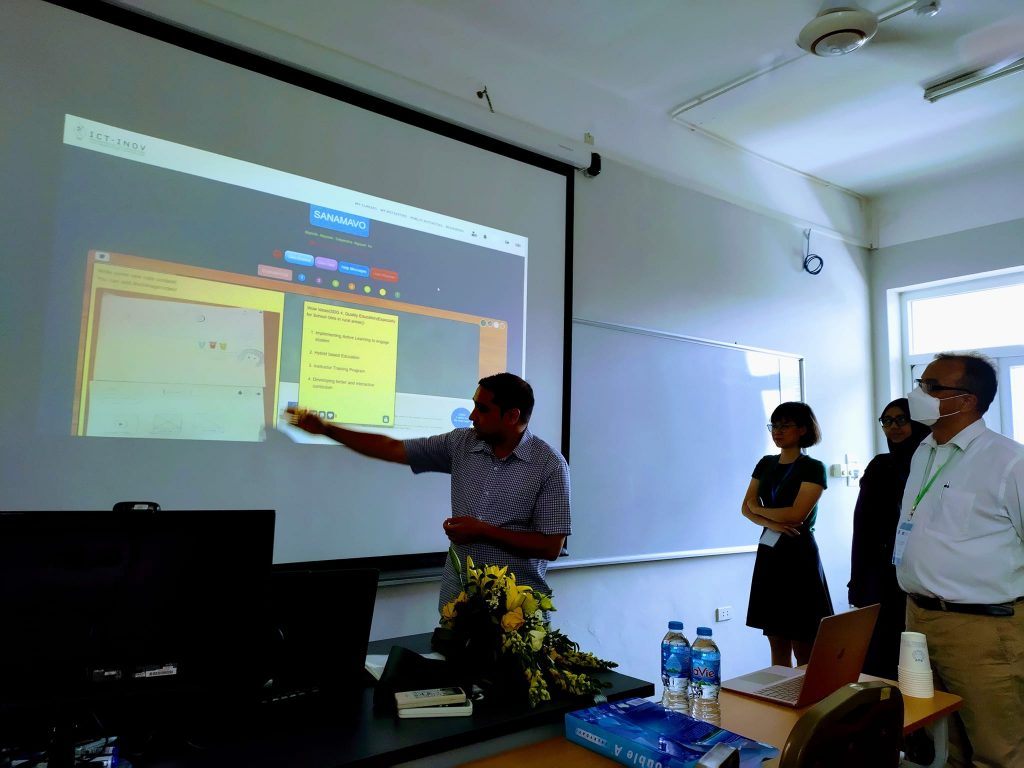
On day 5 of the event, participants continued the solution prototyping process. In addition, they worked on a presentation that summarized the week’s work. The presentation included the team’s name and logo, the description of the problem they selected, the description of their suggested solution, sustainability goals to which the solution is related, use of technology in their solution, and marketing ideas. Each team presented their final solutions to the entire group. An award ceremony took place for rewarding the hard work of the week. Furthermore, a discussion followed with further recommendations on deploying the proposed activities in classrooms.
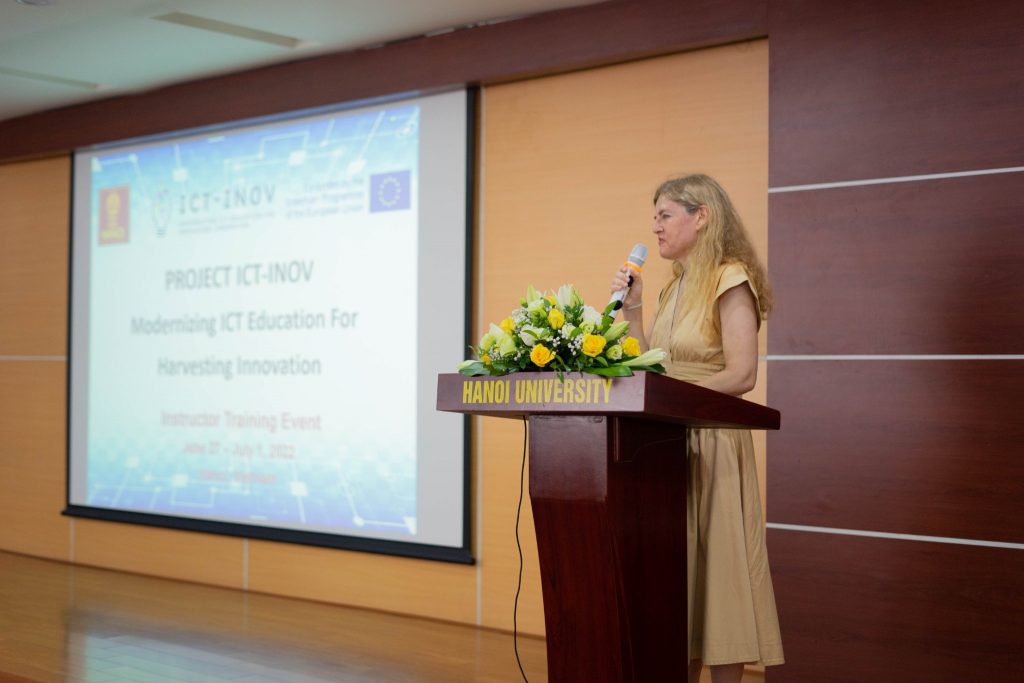
Feedback and dissemination
The feedback of the participants was very positive both in terms of methodological design and digital services provided by the ICT-INOV digital learning platform.
